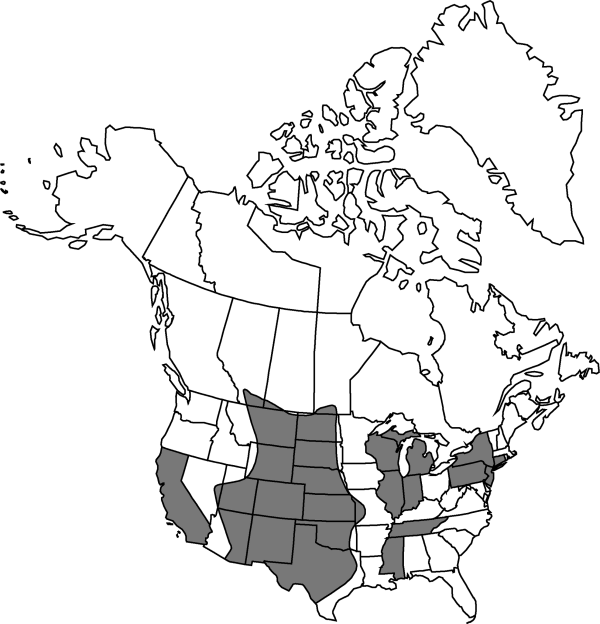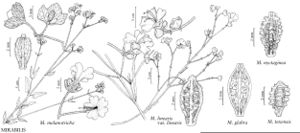Difference between revisions of "Mirabilis linearis var. linearis"
FNA>Volume Importer |
imported>Volume Importer |
||
| Line 3: | Line 3: | ||
|accepted_authority= | |accepted_authority= | ||
|publications= | |publications= | ||
| + | |special_status={{Treatment/ID/Special_status | ||
| + | |code=F | ||
| + | |label=Illustrated | ||
| + | }} | ||
|basionyms= | |basionyms= | ||
|synonyms={{Treatment/ID/Synonym | |synonyms={{Treatment/ID/Synonym | ||
| Line 77: | Line 81: | ||
|publication title= | |publication title= | ||
|publication year= | |publication year= | ||
| − | |special status= | + | |special status=Illustrated |
| − | |source xml=https:// | + | |source xml=https://bibilujan@bitbucket.org/aafc-mbb/fna-data-curation.git/src/bb6b7e3a7de7d3b7888a1ad48c7fd8f5c722d8d6/coarse_grained_fna_xml/V4/V4_101.xml |
|genus=Mirabilis | |genus=Mirabilis | ||
|section=Mirabilis sect. Oxybaphus | |section=Mirabilis sect. Oxybaphus | ||
Revision as of 23:12, 27 May 2020
Stems erect, ascending, or decumbent-ascending, 1–13 dm, minutely puberulent, glabrate, or glabrous basally. Leaf blades grayish or bluish green, linear, 3–10 × 0.1–1(–1.3) cm, surfaces glabrous or glandular-pubescent. Inflorescences of single involucres in axils, or terminal, well branched with ± well-defined main axis; fruiting involucres 5–10(–15) mm, crosswalls of peduncle hairs usually pale. Perianth white to deep rose-pink.
Phenology: Flowering late spring–late summer.
Habitat: Sandy, gravelly, or rocky places, disturbed areas, grasslands, brush, open areas
Elevation: 200-2700 m
Distribution

Alta., Man., Sask., Ariz., Calif., Colo., Conn., Ill., Ind., Kans., Mich., Miss., Mo., Mont., Nebr., Nev., N.J., N.Mex., N.Y., N.Dak., Okla., Pa., S.Dak., Tenn., Tex., Utah, Wis., Wyo., Mexico (Chihuahua, Coahuila, Durango, San Luis Potosí).
Discussion
Mirabilis linearis var. linearis is primarily of the Great Plains, the valleys of the Rocky Mountain region, and the central plateau of northern Mexico. It is sporadically introduced elsewhere. Through the named forms M. decumbens and M. lanceolata, it intergrades into M. albida, in the broad sense. A possible intergrade to M. glabra from Utah has fruits with five, six, or seven ribs. Only rarely are different growth forms found in the same population, and there is some suggestion from specimen data that in some instances growth forms are phenological stages. In the northern portion of the Great Plains, M. linearis and M. albida thoroughly intergrade.
Selected References
None.
